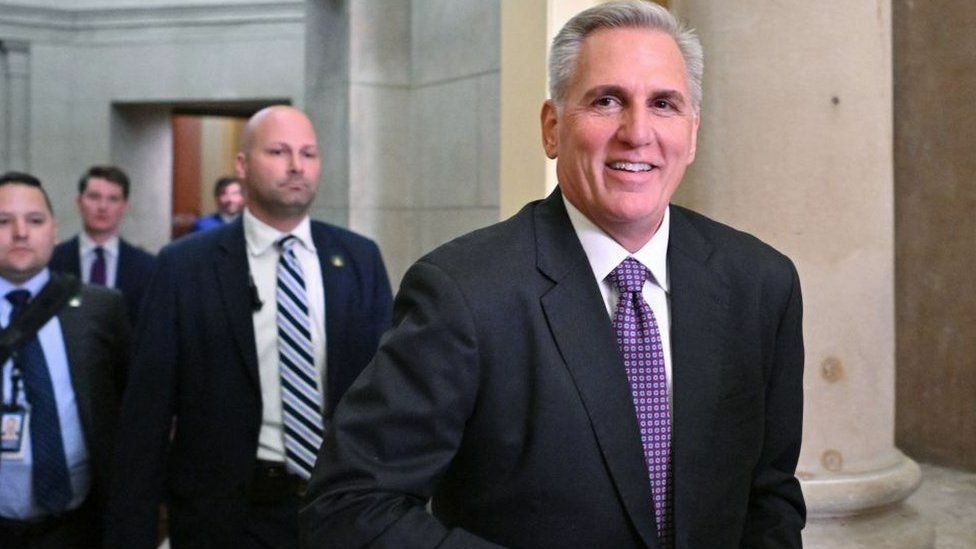House approves US debt ceiling raise, averting default threat

The US House of Representatives has given its approval for a deal permitting the nation to borrow more funds, mere days before the world’s largest economy is set to begin defaulting on its debt. The measure was passed in the chamber with a 314-117 vote, despite some members from both sides not supporting it. The US Senate must vote on the bill later this week before it can be signed into law by President Joe Biden. The government is predicted to reach its borrowing limit today, leaving little room for error as lawmakers work to prevent the US from defaulting on its US$31.4tn (£25tn) debt, which serves as the foundation of the global financial system.
On Wednesday evening, 165 Democrats and 149 Republicans approved the 99-page bill to raise the debt ceiling, allowing it to pass the House by the required simple majority. A bipartisan compromise was reached between President Biden and House Speaker Kevin McCarthy after weeks of negotiation, with both Republicans and Democrats in control of different chambers of Congress.
In a statement, President Biden expressed his gratitude to the Speaker, acknowledging that neither side achieved all of their objectives, but that this is part of the responsibility of governing. The agreement suspends the debt ceiling until January 1, 2025, and would result in US$1.5tn in savings over a decade, according to the non-partisan Congressional Budget Office.
However, the bill’s passage faced uncertainty as lawmakers from both parties voiced their opposition. Some ultra-conservative Republicans felt they had not secured enough concessions for raising the debt limit, while Democrats took issue with provisions that increased work requirements for Americans receiving federal food aid and resumed student loan repayments. Despite these concerns, the bill received enough support to pass.
The legislation now moves to the Senate, where a combination of Democratic and Republican votes may be necessary for its passage. Both Democratic and Republican Senate leaders are working to ensure that a bill reaches President Biden’s desk for his signature before a default occurs.
In 2011, the US came close to overshooting its debt ceiling, resulting in credit agency Standard & Poor’s downgrading the country’s rating – a change that has not yet been reversed. Prior to Wednesday’s vote, US stock markets closed slightly lower, with the Dow falling 0.4% and both the S&P and Nasdaq dipping by 0.6%.
Latest Thailand News
Follow The Thaiger on Google News:


























